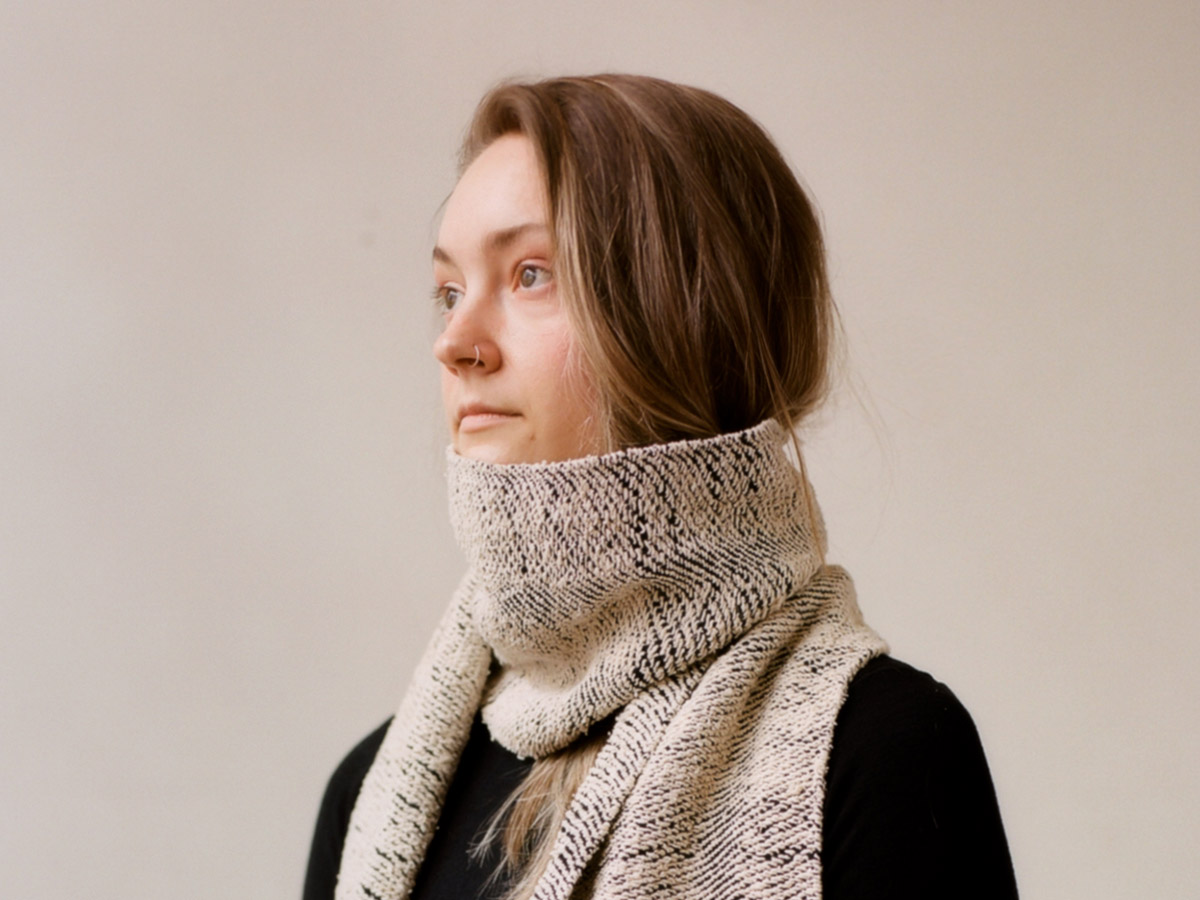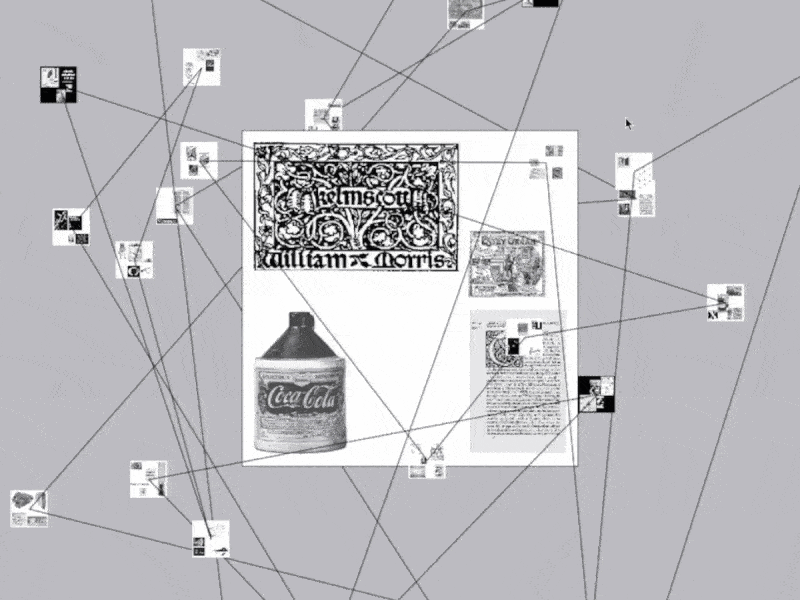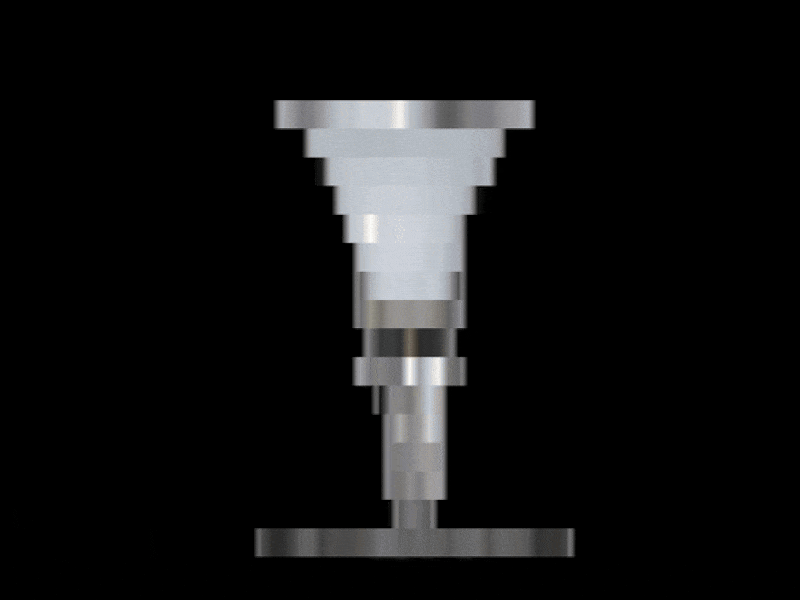A conversation with Anna Shams Ili
Hi Anna! It was super nice to meet you at the PCD CPH, I really liked your talk in which you showcased some of your projects and the ideas behind. For those who don’t know you: Tell us who you are, what your main interests are.
Hi Tim! My name is Anna and I am a third of the collective “CURSOR” – we are a collective looking at the intersection of tech and society from a critical, utopic, and intersectional feminist lens. I am also currently finishing my masters in Social Data Science where I am focusing on network science and social media culture, and am generally interested in community oriented data-projects. I have a background in sociology and digital media/information studies, so everything related to those topics is very dear to my heart. Besides that, I also try to keep creative and enjoy embroidering.
With cursor, you launched a very interesting online-platform. Tell us about the trajectories of that project.
CURSOR started when I started my masters in Copenhagen, and met Maya who was on my course. We had very similar interests and motivations for doing the course, and felt we lacked an outlet for both our own ideas and to meet other like-minded people. When we first talked, we wanted to do events, but since we both had a background in student magazines, it felt natural and tangible to start with the magazine first. After our first event in early 2022, we were joined by Mia, who had experience in event and community management, and is now responsible for our event output. CURSOR has always evolved quite naturally, since the three of us often talk about where we want it to go. We’ve not been too afraid to change up processes if they haven’t worked for us, and we’re definitely still evolving.


What motivated you to conduct a physical creative coding meetup?
We’ve played with different formats before, but have always felt it much more natural to connect with the in-person community, and whilst we have tried having online events, we noticed the demand hasn’t been that great for it. I have always been really interested in longer events, and hackathons/datasprints are one of the more archetypal tech events you can host. I think it’s fun to rethink formats, especially when they are associated with specific contexts, and just trying to think of a way to make a space you would want to stay in. Creative coding felt like a great idea for this format, as we knew it would attract a creative community and it felt conducive to a more “off the grid” learning approach.
Pros and cons of learning off the grid?
I am a big fan of off-the-grid/tactile learning – of course, the biggest con is that if you are completely off-grid, coding becomes very difficult. But I think you can learn a lot more about technology by not using it, as it forces you to rethink what you’re actually looking at. There’s of course the classic pro of being less distracted, but working physically with objects or writing and drawing makes you consider new elements and perhaps expands your imagination in a way that is not possible when you are confined to a screen and keyboard.


In the talk you mentioned Digital Minimalism as an aspect of the meetup. Could you tell us about that?
Digital minimalism was one of three strands for the Creative Coding Camp, but it was a bit of a guiding theme in how we structured it. We are definitely not technophobic (I would be very sad without my computer), but for this camp we wanted people to talk to each other and think creatively. I think all three (digital privacy, nature and technology, digital minimalism) themes intertwined in the camp, as they all blend quite naturally.
How does Discord work for your Community?
We use Discord as a primary platform for any community-oriented messages, because we wanted a platform that wasn’t a Facebook group or at the mercy of someone seeing an Instagram post. It’s definitely a work in progress, and it’s always a balance because we want to use social media very intentionally – it’s never our goal to persuade someone to spend more time online, and we don’t have an interest in spending extra time online to do the persuading. But it’s so great the space on Discord exists, people can ask for recommendations, share articles, and I’ve also had the pleasure to meet up with people who’ve been passing by in Copenhagen and posted there. It’s definitely a space that is for the community, however people want to use it.
Secretly of course, my dream is to have a flat web forum for CURSOR where everyone can pick a cute 25×25 px avatar and start weirdly specific threads.
You mentioned you like working on/with archives. Could you elaborate on this?
I have an undergraduate degree in Digital Media and Information Studies (with Sociology) and had to take classes surrounding practices in archiving and record-management and the history of the internet. One thing I find fascinating is the process of digitalisation and the way we put our trust into record-keeping on the internet. To me it’s very connected to my interest in data and databases – record-keeping is often seen as a dry practice but it is crucial in almost any aspect of life. I know the group Identity 2.0 recently hosted a talk around the conception that what is on the internet stays there forever, and I think internet archives in particular are incredibly interesting. I think most of us have by now experienced some instance of a service deprecating where you didn’t quite get to download your data (or maybe found it unimportant) and whilst physical media also has its drawbacks, little of it is usually related to private entities being able to destroy your records.
Another aspect of archiving, particularly within internet histories, I find fascinating is of course the idea of credit and what is worth keeping. I look forward to the time where internet history is actually taught in school, because if you think about it, it is wild how much time we spend online with no idea what happened before us (although maybe this really isn’t too different from IRL history).


How do you perceive the media landscape around technology critics?
I talked to someone at my university recently who had been invited to give a talk, at some sort of event around AI aimed at a largely corporate, AI-optimistic audience. They politely declined, because the invitation was framed as providing the “critical perspective” of the coin. I find this really symptomatic, as I was also at an AI conference last year where a speaker (clearly with the same intention) was “critical” of AI – and heard him being criticised in the hallway after. I think it is very disturbing how it seems that people are set to play the role of being very pro or anti what is at its essence a type of technology. There is a bit of a tension where I get the impression that those who aren’t completely on board of the AI hype train are in public perception seen as luddites or “providing the critical perspective” as opposed to valid opinions or concerns worth investigation. When they are given a valid side, it’s usually in the context of a data leak or other form of “tech gone wrong” – at which point, maybe being a bit critical and skeptical from the beginning would’ve saved some headache?
Spontaneous thoughts on Artificial Intelligence in the arts?
My actual first thought on the topic is always that super creepy Coco Chanel pre-AI CGI commercial they did some years back – honestly, it’s hard for me to distinguish my thoughts about AI in the arts with my thoughts about how we use technology in general and it would probably take me an essay to unpack my thoughts on why I find that commercial creepy.
That said, I think most things can be used with intent if you are aware of what you are looking at, and having done my fair share of podcast and video editing, I think “artificial intelligence” would be great to save humanity from the plague that is EQ.
Future plans?
Continue developing CURSOR so we can sustainably continue is a big one – we have some great ideas for future camps, events, magazines, etc. but there is a lot of boring behind-the-scenes logistics that needs to be done for it to work out. There’s a lot of others things I would like to do, but I should probably submit my thesis first.
People I should interview?
Ada ada ada is a Copenhagen based artist we’ve previously worked with who’s really cool and primarily at the moment working an art project looking at the trans body, gender recognition algorithms, and instagram moderation practices.
You might already know her, but Rifke Sadler consistently has the coolest creative coding projects.
Identity 2.0 are a creative agency who also did a workshop at the camp, but most importantly, they recently had a talk at the Naitonal Archives in London around digital archives post-internet and how the cloud has impacted our conception of archiving.
Links
Related
 Sam Griffith connects Creative Coding with Enviromentalism
Sam Griffith connects Creative Coding with Enviromentalism
In this post I’d like to introduce you to Sam Griffith, a talented graphic designer based in Detroit, to discuss […]
 Omid Nemalhabib explores the intersection of Creative Coding and Perso-Arabic Typography
Omid Nemalhabib explores the intersection of Creative Coding and Perso-Arabic Typography
In 2022, I spontaneously posted a story on Instagram: If anyone out there is also in Rotterdam, I’d love to […]
 A conversation with Talia Cotton
A conversation with Talia Cotton
During OFFF Festival here in Barcelona, many interesting people come around! This interview with Talia Cotton came about almost by […]
 Lena Weber about her collaboration with A. G. Cook
Lena Weber about her collaboration with A. G. Cook
Lena: This 10-minute visualiser for A. G. Cooks album teaser featuring my python archive generator, is one of my favourite […]
 A conversation with Lisa Apers
A conversation with Lisa Apers
Hi Lisa, it was amazing to meet you at Processing Community Day in Copenhagen! For those who don’t know you: […]
 A conversation with Tomáš Kostrzeva
A conversation with Tomáš Kostrzeva
Hi Tomáš, thanks for answering a few of my questions! Let’s start with the basics. Who are you, and what […]
 Instagram-Live with Lena Weber
Instagram-Live with Lena Weber
I met Lena Weber at a workshop at International Assembly, after that we became friends and she helped me over […]
 A conversation with Raphaël de Courville
A conversation with Raphaël de Courville
A few weeks ago I had the honor to meet Raphaël de Courville in person at the audivisual jam at […]